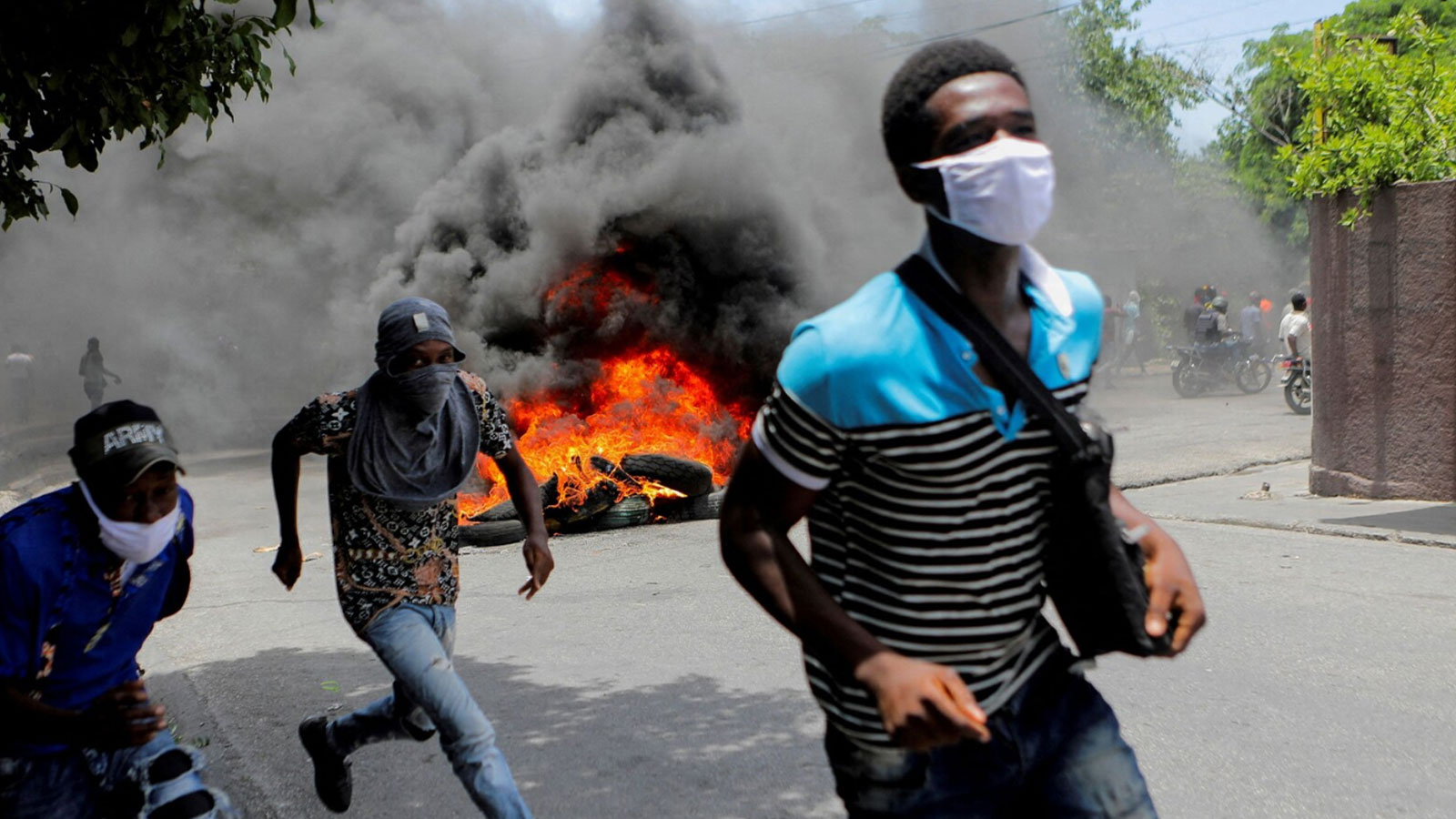Kenya answered the U.N. secretary general’s call for an international intervention in Haiti. To be effective, it needs to grapple with gang violence.
Any successful international intervention to stabilize Haiti would face the daunting task of grappling with the gang-fueled violence, vacuum of authority and general pandemonium that have paralyzed the Western Hemisphere’s most destitute nation. Early indications are that Kenya, which in July offered to send 1,000 police officers to lead such a mission, at the behest of U.N. Secretary General António Guterres, might not be prepared for the job.
That was the upshot of a visit last month to the Haitian capital of Port-au-Prince by a Kenyan delegation, accompanied by a sizable contingent of U.S. diplomats and security personnel. According to multiple sources, the Kenyans said they were prepared to send what they called a “static” force that would, in conjunction with police from other countries, secure critical infrastructure around the city, such as the port, airport and power stations.
Restoring a semblance of security for Haitians whose lives have been made unbearable by the chaos they encounter daily seemed beyond the scope of what the Kenyans are prepared to do. If that remains Kenya’s stance, it is a recipe for failure. A static Kenyan force would produce only stasis in Haiti. Mr. Guterres should face that problem squarely.
Haitians desperate for an end to anarchy would almost certainly resent the idea of prioritizing buildings over people. If an international force lacks the resources and will to take on the criminal gangs that have taken over and terrorized much of the capital, it will quickly be judged a failure — and rightly so.
Haiti’s government appealed for international intervention nearly a year ago, and Mr. Guterres himself has endorsed a “robust security force” to subdue the gangs that traffic in murder, sexual violence, kidnapping-for-ransom, extortion and illegal drugs. The U.N. chief would be wise to press Kenya to fulfill that vision — and also to insist on a muscular mandate that offers real hope to Haitians desperate for normalcy.
The Biden administration should show a similar interest and exercise its influence accordingly. Haiti’s agonies have washed up on U.S. soil repeatedly and recently in the form of Haitian migrants fleeing chaos in their country. Washington, which declined to provide its own troops to stabilize Haiti, has welcomed the Kenyan offer. It should also make clear that fostering stability and creating the conditions for eventual elections are the mission’s right goals.
Predictably, the turmoil in Haiti has only deepened since the assassination in 2021 of President Jovenel Moïse and continues to generate streets littered with corpses. Just last weekend, gang members shot and killed at least seven churchgoers who were marching to protest gang violence on the capital’s outskirts.
Among the Haitian migrants who have sought refuge in the United States this year are Haitian police, a force badly outmatched and outgunned on the streets of Port-au-Prince. That exodus has accelerated the force’s depletion and incapacity. The police have proved so ineffective at reining in gang violence that in recent months vigilantes have taken it upon themselves to murder gang members in the street.
It makes no sense to deploy an international force that would keep vigil at critical facilities while the Haitian police remain impotent to fight gangs.
There should be no minimizing the difficulties that the Kenyan-led mission would face, if it received a go-ahead from the government in Nairobi and the U.N. Security Council. Kenya’s own 1,000 police officers would be insufficient; they would have to be supplemented by officers or troops from other countries; Rwanda, Jamaica and the Bahamas are reported to have offered to pitch in. In an urban environment of violence and risk, members of the mission would need to be vigilant about respecting the rights of innocent civilians and using force judiciously.
What’s more, any outside force that would enter Haiti should be mindful of the bitter legacy of past international interventions there, which have included U.N. troops who introduced a deadly cholera outbreak, and others who sexually exploited Haitian girls and women.
Kenya deserves credit for responding to Mr. Guterres’s call to help Haiti, a country with which it shares little history or cultural heritage. Here’s hoping the government in Nairobi can be persuaded to see the mission clearly.
Source: Washington Post
Featured image: Men run next to burning tires during a protest demanding an end to gang violence, in Port-au-Prince, Haiti, on Aug. 14. (Ralph Tedy Erol/Reuters)















